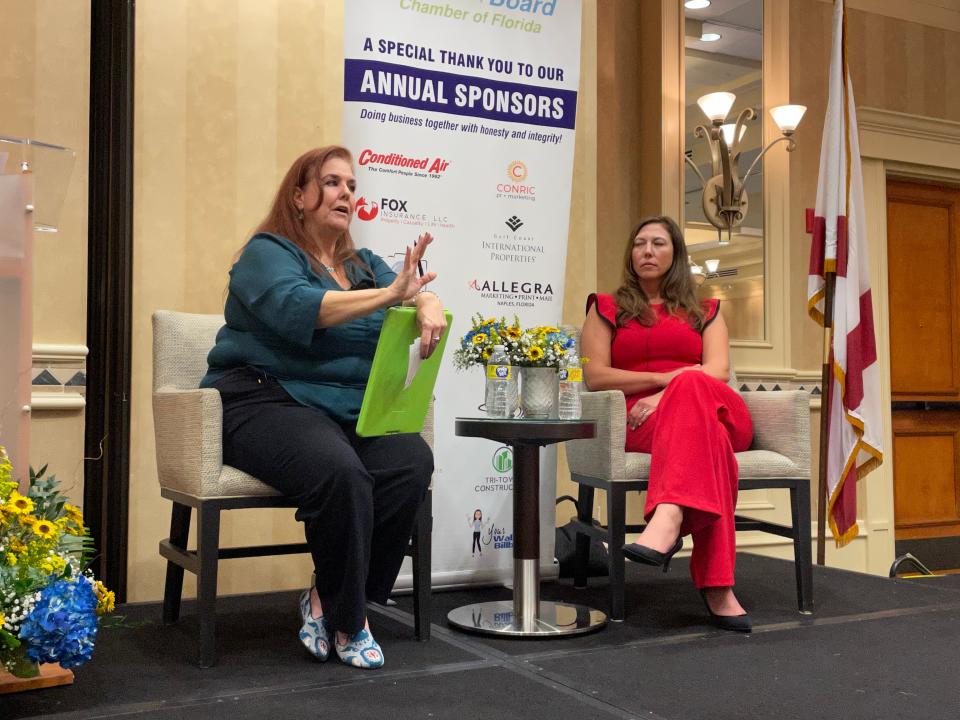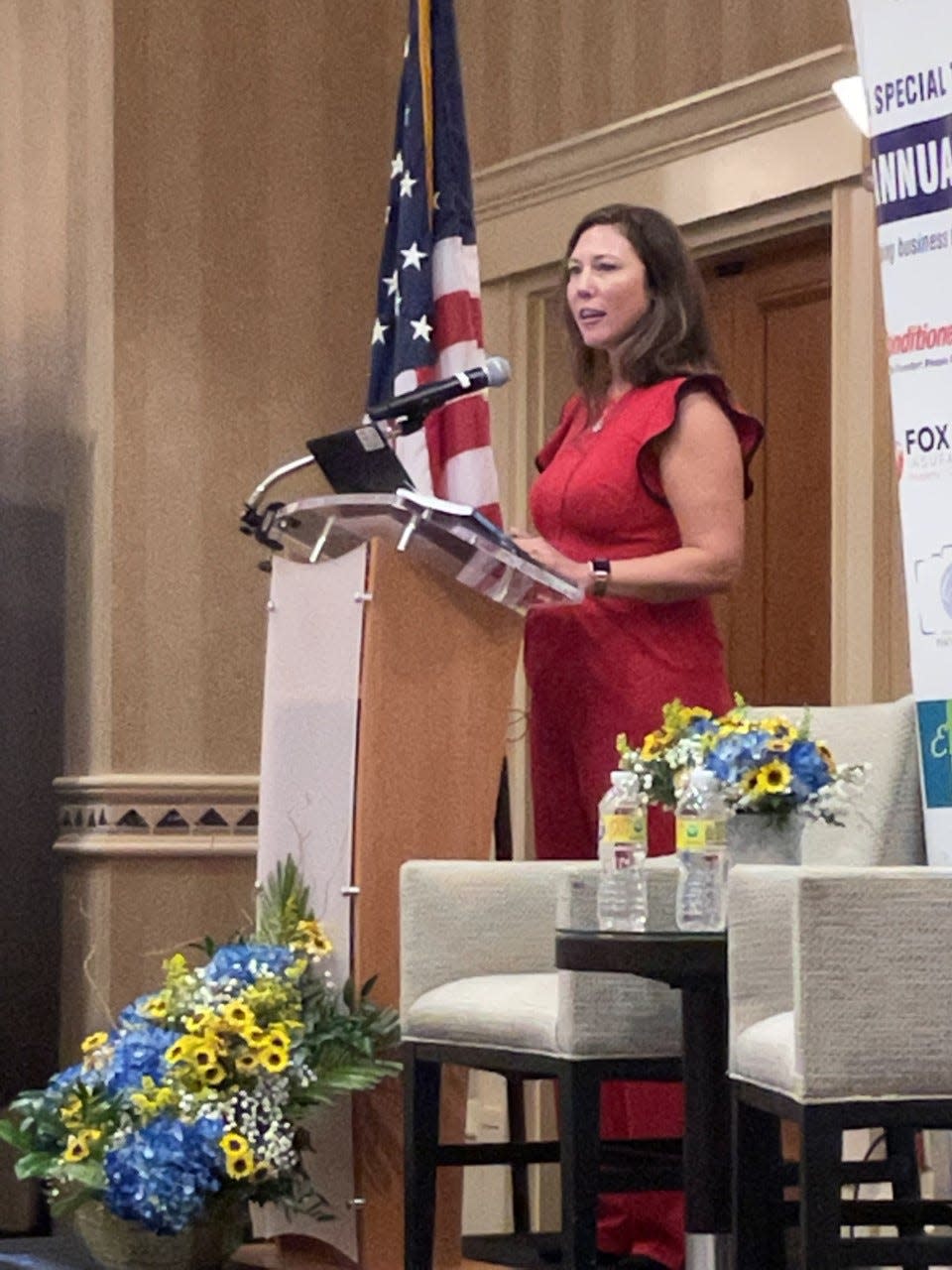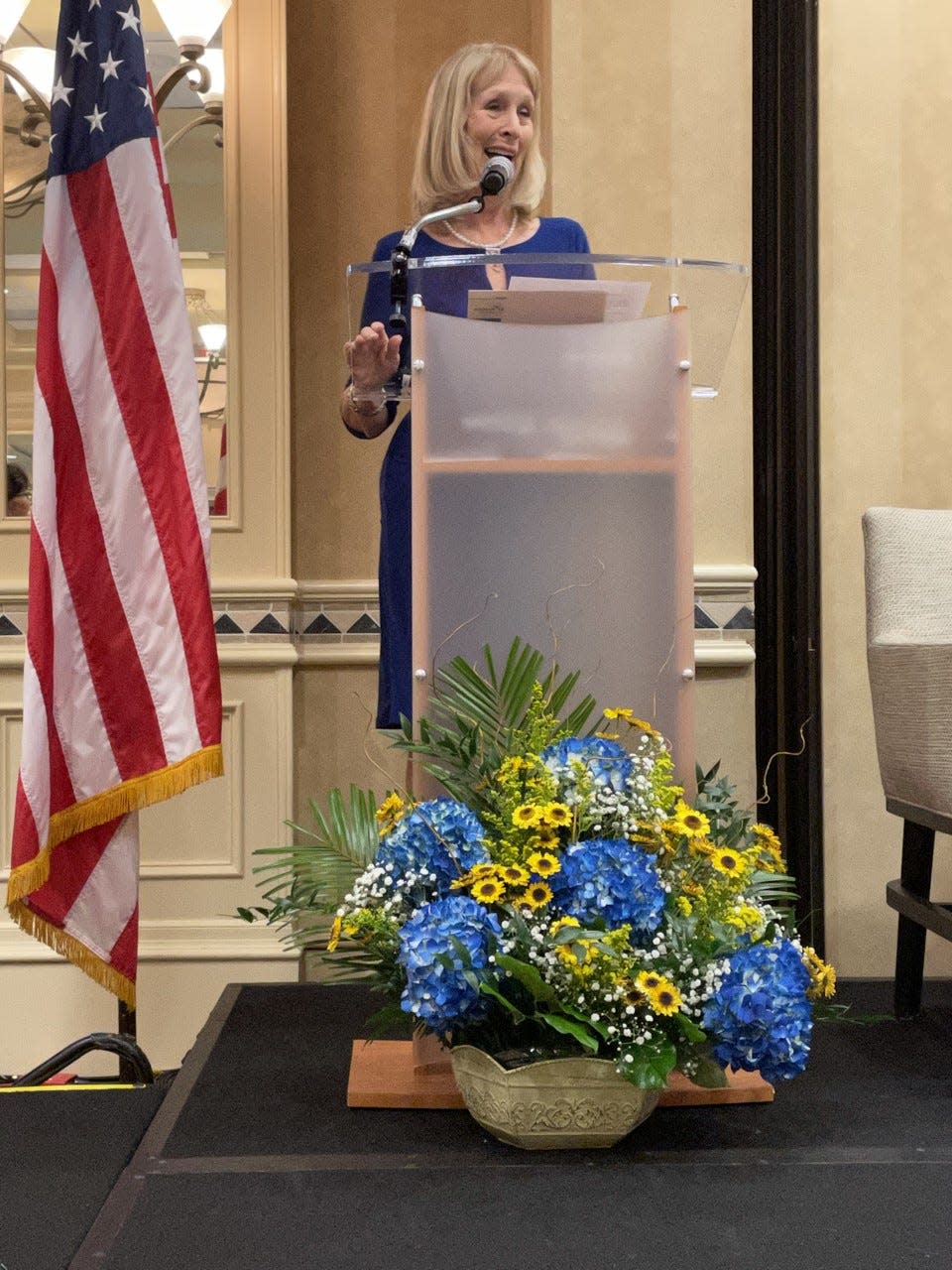'There isn't a textbook': FGCU professor sheds light on cryptocurrency in special topics course
Kelly Werder has much to say about cryptocurrency.
So much so that she created a special topics course about it at Florida Gulf Coast University.
As an instructor in the university's Daveler & Kauanui School of Entrepreneurship, she's often fielded questions from students about the mysterious world of crypto.
Her elective course, Blockchain Applications, is designed to answer those questions — and more. She created it from scratch.
"There isn't a textbook. It literally doesn't exist," Werder said.
In the course, she offers a detailed analysis of the leading technologies behind cryptocurrencies, NFTs and smart contracts. NFT stands for non-fungible tokens.

One of her main objectives is to protect students from scams, or other misfortunes, by offering them some "guardrails."
"This technology is so interesting and I think it's going to have a lot of different applications in the future," Werder said. "We need entrepreneurs to know about and understand it — and how to build on it."
The course, launched in January, was "met with overwhelming success," Werder said.
"Everyone seemed to really love it," she said.
The first class drew 75 students. That included 45 in the entrepreneurship program and 30 in computer engineering.
The course will be repeated this fall.
Ultimately, Werder hopes to make it a permanent part of the university's curriculum, which will require a more formal approval process.
"It's an exciting topic," she said. "And it's an exciting time to be teaching it. That's for sure."

The latest crypto crash — and recent news of yet another multimillion-dollar cryptocurrency heist — have put an exclamation point on the need for caution when investing in it.
Five important cryptocurrency tips
For safety and security, here are the five points Werder stresses about cryptocurrency and NFTs to her students — and anyone who'll listen:
1) Never put more money into them than you are willing to lose. There are no guarantees and there are many factors that impact currency prices and NFT success. It’s a gamble.
2) Do not click on links that come via email or that you are not fully sure about. There are scammers who prey on those who don’t double-check.
3) Always do your own research. Before buying a cryptocurrency you are unfamiliar with or an NFT, carefully research the team and the project. Make sure you understand what it is you are really buying.
4) Never share your seed phrase (or passcode) for your crypto wallet. This should be kept offline and secure. Make sure it is included in your will.
5) Don't rush into a hyped project that is getting a lot of attention without first researching it. It’s easy to get caught up in a moment and ignore warning signs. If it sounds too good to be true, it probably is.
"I share all of these with students in detail throughout the course," Werder said.
She emphasizes her first point often, not to invest more than you're willing to lose, hoping to keep students out of trouble.
"Keeping them safe in this space is a top priority for me," Werder said.
Crypto crash: Hackers steal $100 million worth in cryptocurrency in latest heist
Investors should use caution
She likens the unregulated investments to betting at a casino.
"There is no FDIC insurance," Werder said. "No one is going to bail you out. So it's important to keep that in mind."
In her course, students created an NFT project. NFTs are digital assets that can be sold, such as a work of art or a piece of music.
The class project is known as FloriNouns. The students have produced nearly 700 unique digital images, to put up for sale.
When Werder talks about crypto, her passion for it is evident.
A few weeks ago, at an Above Board Chamber luncheon, held at the Hilton Naples, she shared the stage with Jessica Washington, a payment risk expert with the Federal Reserve Bank of Atlanta, to discuss digital currency and cryptocurrency.
In her presentation, Washington gave a little bit of history about the first-ever cryptocurrency, Bitcoin, created by Satoshi Nakamoto.

She explained how it debuted in 2009 on the heels of the economic recession,.so people wouldn't have to rely on government or financial institutions to buy or sell products.
She repeatedly questioned whether it was really a problem to a solution, rather than a solution to a problem.
"They can write their own rules," Washington said of issuers.
After the first “genesis block” was mined, it set off a "blockchain revolution," Washington said.
Mining is the process of creating Bitcoin by solving puzzles. It's how transactions are verified.
On average, problems take about 10 minutes to solve, Washington said. The first miner to arrive at the right answer is rewarded with Bitcoin.

She outlined some of Bitcoin's weaknesses, including the large fluctuations in its value, despite a determined supply.
There are now thousands of cryptocurrencies. Investing in them is easy, via online brokers, but both Washington and Werder emphasized investors must tread lightly, to avoid fraudsters and scams.
The chamber luncheon drew a large, inquisitive crowd. The speakers answered many questions on the head-scratching topic.
Jeanne Sweeney, the chamber's CEO and founder, was pleased with the turnout and participation of attendees. She admitted some of the information presented went over her head and others expressed the same.
However, she said, shedding light on such an important topic met the chamber's mission to help business leaders learn and grow.
Asked what she learned, Sweeney mentioned several points including: "That it's going to be a least 10 years before there is a true central bank-backed digital currency in the United States. All currencies that currently try to claim they are — or will be — are fake."
With knowledge, she said, comes power, as she doesn't "fear conversation on cryptocurrency/blockchain anymore."

In the future, Werder hopes to offer workshops for businesses and the community to share her knowledge of cryptocurrency through Florida Gulf Coast University, based on their needs and wants.
She said her goal is not to push it on anybody, but rather to enlighten those with an interest in it, so they can make informed decisions — and not break the ba
This article originally appeared on Naples Daily News: What are NFTs? FGCU professor teaches course on investing in crypto

